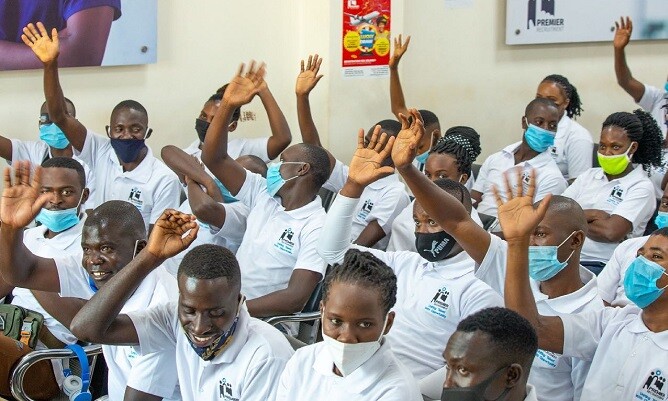By Adam Bicha
There has been a lot of media talk from critics of labour externalisation sector regarding the welfare and monitoring of migrant workers from Uganda especially for those externalised to Saudi Arabia and Jordan.
There have been claims that government is deliberately selling young Ugandans into slavery and therefore calling for total ban on the externalisation of labour by Migrant Workers’ Voice Organisation, a non-profit making organisation headed by a one Abdallah Kayonde.
According to a petition seen that was served by Migrant Workers Voice to Uganda Human Rights Commission and copied to parliamentary committee on labour, gender and social development, speaker among others that was seeking for their pronouncement and a temporary injunction into the externalisation of Ugandan domestic workers to Middle East.
Therefore it is wise to come out and give clarity on a few issues about labour externalisation sector since no one either from government, private sector or the agitators of the ban seems to be giving an answer on who will benefit from the ban in case it takes place.
The challenges pointed out were first of all noted in the recent press statement by the minister of Gender, Labour and Social Development, Betty Among, on her return from Saudi Arabia where she and a delegation including the ministry’s technical team spent a week trying to asses and analyse the situation on ground.
Among stressed that findings from her visit indicated challenges like reported breaches of terms and conditions in migrant workers contracts and non-enforcement of sanctions on perpetrators.
Some of these included: Denial of access to adequate medical services by employers, incomplete or non-payment of wages, denial of access to telephone, internet and other communication services, confiscation of identification documents by some employers and agencies and instances of torture and mistreatment of domestic workers.
The call for the ban therefore comes after the minister’s visit and seems to be irrelevant and diversionary.
The agitators of the ban on labour externalisation seem to be driven by self-interests and emotions than focusing on how to improve the sector to a level that can equally benefit all players including the government as key benefactor.
The labour externalisation sector is estimated to be fetching over $900m remittances annually from Middle East alone and offering employment opportunities to over 140,000 Ugandans to the Kingdom of Saudi Arabia alone deployed in different categories across the expansive terrain.
The problem of un-employment is estimated to be between 64%-70% as about 400,000 youth are released annually into the job market to compete for approximately 9,000 available jobs.
This therefore means that if the sector is well streamlined, this programme if managed to the expectation of all parties involved can alleviate the un employment situation in the country and also bring in remittances that help to improve the livelihoods of our people.
The Association Uganda Association of External Recruitment Agencies (UAERA) 2020-2021 report indicated that approximately 350,000 Ugandans work in the Middle East doing both domestic and non-domestic jobs and of course the number keeps on increasing.
Evidence has shown that if banned or unregulated strictly, this movement can degenerate into the vice of human trafficking and its associated risks due to desperation caused by surging levels of un employment back home since the ban will fuel up the numbers of Ugandans leaving the country illegally under nobody’s watch.
The information obtained from reliable sources also indicate that there could be much more than what meets the eye behind the call for a ban on labour externalisation since agitators of the ban themselves are aware of the risks involved like facilitating human trafficking and other related challenges.
There is also pinning evidence obtained indicating that proprietors of Migrant Workers Voice network association had proposed to UAERA in 2020 to be awarded a contract for monitoring framework, management and support for domestic migrant workers in Middle-East countries which they have since failed to secure.
With such glaring facts at hand therefore, I find it very normal to conclude that this call for an injunction or ban is not being pushed in good faith for the benefit of the government, unemployed Ugandans or players in the labour externalisation sector but rather a self-seeking move to sabotage the sector.
It should not be given the desired attention.
If you would like your article/opinion to be published on Uganda’s most authoritative news platform, send your submission on: [email protected]. You can also follow DailyExpress on WhatsApp and on Twitter (X) for realtime updates.



